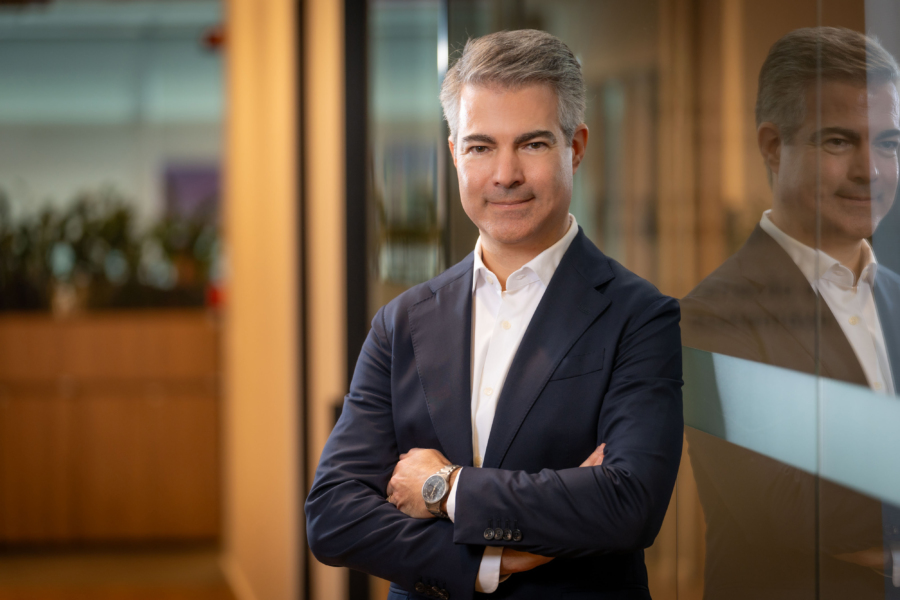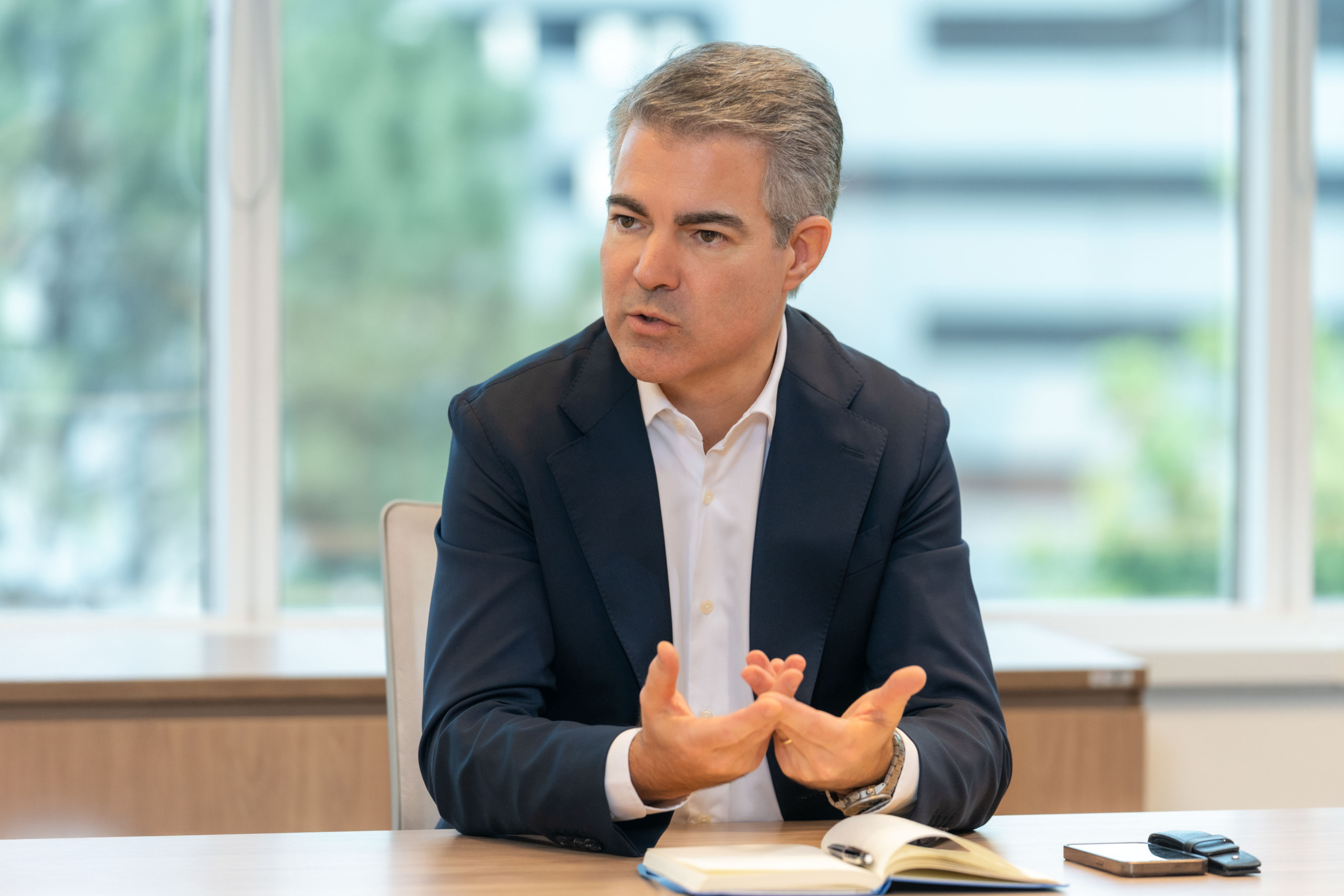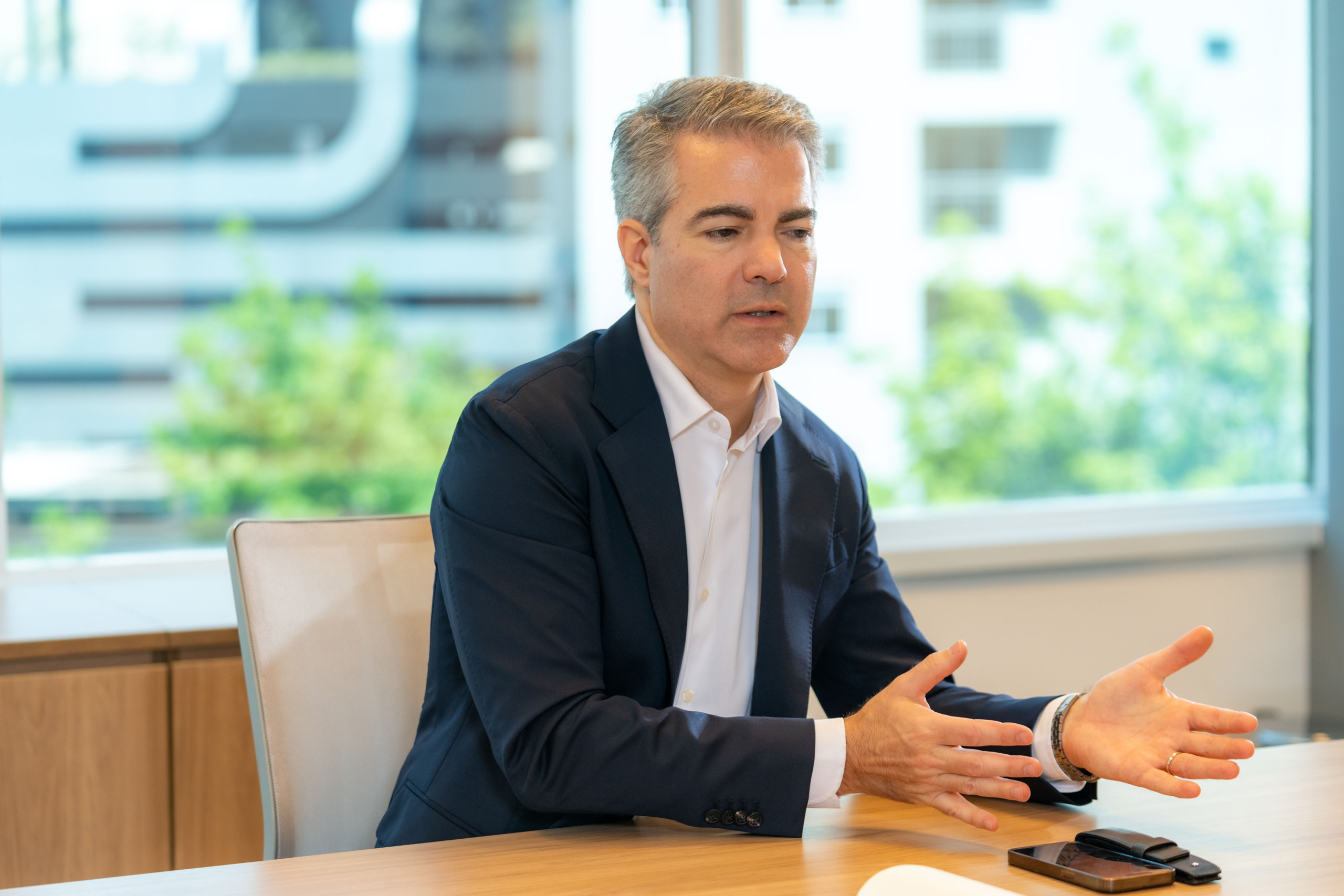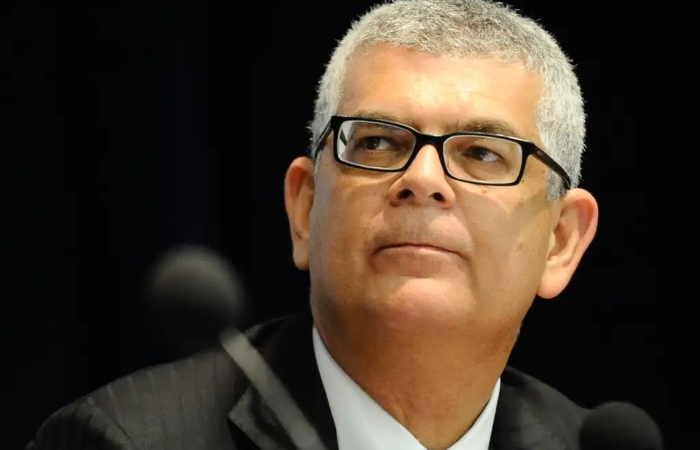
“A company’s value is closely related to its reputation. We understand reputation as an asset and we take every care to manage this asset with monitoring systems.”
Miguel Setas almost always has his cell phone on, except for the moments when he flies through the country's skies to visit the company's operations. CCR. The extreme attention is justified. As president of the mobility infrastructure concession company, he commands a group of companies with great operational complexity.
Between the management of highways, subways, trains, VLT, ferries and airports, there are 37 concessions, around 7 thousand employees and a presence in 13 Brazilian states – one combo that impacts around 100 million people per year, equivalent to half of the population of Brazil. And, as you can imagine, you deal with the management of multiple corporate and reputational risks on a daily basis.
“My premise is that we are always in a moment of crisis level zero, of little gravity”, says Setas. “It is a sector exposed to risk.” A learning experience he developed at EDP, an international electric energy company where he worked for 18 yearss, was CEO and Chairman of the Board of Directors in Brazil. It was there that the Portuguese executive embarked, as he describes in his book Giant by Nature itself (Gente Editora), on a successful journey of business transformation and fell in love with Brazil.
In this exclusive interview with Reputation Feed, Setas speaks with great transparency and clarity about strategies to combat and mitigate risks and the relevance of reputation management for companies and leaders. He addresses current issues such as the need to pay attention to and monitor social media and to have climate resilience plans. He also addresses his biggest reputational challenge so far in command of CCR: the transition process of the concession of lines 8 and 9 of São Paulo's metropolitan trains, when operations presented flaws, criticism and an investigation by the Public Prosecutor's Office, precisely when he was joining the company, in April 2023. And, throughout the conversation, he naturally demonstrates why, in recent years, he has been chosen by the specialized press, repeatedly, as one of the best corporate leaders in the country..
Check out the main excerpts from the interview below:
Based on your experience in companies in Brazil and Portugal, what is your perception of how organizations deal with reputation here and in Europe? Is it a priority issue for CEOs and boards?
Without a doubt. Over the past 10 years, we have had significant compliance moments for Brazilian society, with major lawsuits and many companies affected, which have served as accelerators for this issue. Boards, executive teams and shareholders have become aware of the need to manage reputation in a professional, systematic manner, rather than on an ad hoc basis, in response to crises. I have been in Brazil since 2008, and what I have seen over the past 15 years has been a great deal of maturity. This moment was seminal for an awareness that reputation and ethical management are crucial for an organization and its sustainability.
Is this attitude tangible in companies or is it restricted to the C-Level, the board? Do employees understand the importance of reputation?
A lot. I had two experiences in Brazil: one in a multinational company (EDP Group) and now at CCR, for a year and a half. You walk down the halls at our headquarters, for example, and you see communication about our compliance programs on the walls. But it's not just on our walls, it's in our daily lives. It's in practice. CCR's case is exemplary in the adoption of this governance.

“In communication, there is a huge difference between what the sender says and what the receiver receives. I am very careful with my words so as to never put the company in an unpleasant situation, to avoid saying something out of place, something that is not right, and not being good for the company.”
Can you explain more about the relevance of reputation for CCR and how the company deals with this issue?
Reputation is one of the topics to which we dedicate an important part of our management agenda, throughout the value chain, from strategic policies to management policies. The Board of Directors, for example, is advised by several committees. One of them, audit, compliance and risk, monitors our strategy of the three protection barriers – risk management, internal controls, compliance and internal audit.
Examples for monitoring and managing compliance:
- Reporting channels;
- Instruments for registering contracts with politically exposed persons or with some type of conflict of interest;
- Reports on interactions in which conflicts of interest may affect decision-making.
A barrier is more preventive, risk management, and, I repeat, reputational risk management is one of the risks monitored. Then there is compliance and monitoring management.
Does CCR have a board specifically responsible for reputation management?
It is interconnected in the various departments. We have Compliance, Internal Audit and Risk Management departments to take care of these three protective barriers, and a Brand and Communications department, which works together to create this glue. Our reputation is generated among our stakeholders by the way the company communicates. We also have a stakeholder management department, which helps us to carry out structured management of the various audiences with which the company operates. We serve 100 million Brazilians. We have to be very responsible in the way we manage this house.

“We carry out reputation assessments that give us indicators: how the company positions itself, what type of perceptions need to be corrected, what could be a more acute risk.”
CCR faces multiple corporate risks, not only due to its size, but also due to the segments in which it operates and its long chain of partners and suppliers. In this context, how is reputational risk managed?
Reputation, before being a risk, is an asset, that is, the value of the company is closely related to its reputation. This is a poor comparison with what we call the word in common language, at least in Portugal, reputation is the good name. We understand reputation as an asset and we take all the care to manage this asset with monitoring systems. We carry out reputation assessments that give us indicators: how the company positions itself, what type of perceptions need to be corrected, what may be a more acute risk for us, how we can combat these perceptions that may eventually harm our reputation.We do) the management of the systems that help us build this reputation.
When does CCR consider that it is facing an image crisis?
We have an internal risk and crisis management policy. And the crisis levels are typified: we can have a simple interruption of service, we can have a systemic crisis, which can involve human lives and very structural issues, which can even impact the company's sustainability. We have gradations of risk levels. My premise is that we are always in a moment of crisis level zero. CCR, due to its business, is always in a crisis level zero, which means of little severity.
Is it a wish, a goal?
No, it's a mindset. Because of my job, I can never turn off my cell phone, except on planes. I'm always alert. There could be an accident, a highway might be closed, a train might derail. I worked in the electric power sector for 18 years and there could be a blackout, an accident, a subsection catching fire, a transmission line being knocked down by the wind, you can have many things. In the transportation sector, I think it's even more acute. My mindset is to wake up in the morning knowing that something could happen.
It is a vulnerable sector.
Vulnerable is not the word; it is a sector exposed to risk. There could be a problem at the airport, a cyber risk, a climate risk that could impede our highways. I am always on high alert. The standard is a contained crisis. We will consider whether this zero-level crisis evolves into a level one, whether the level one crisis rises to level 2, and whether the level 2 crisis rises to the maximum level. We have four levels of crisis classification.
And during your time as CEO of the company, what has been the biggest challenge in terms of reputation?
The biggest challenge was precisely when I was arriving, in April 2023, regarding the concession of metropolitan train lines 8 and 9 in São Paulo, from the former CPTM. The transition was painful. It was a time of consuming energy in resolving the crisis. And so we did. In a few months, we managed to rebalance the provision of services. Today, we no longer hear about this problem. We reached agreements with the Public Prosecutor's Office and everything to compensate society for a service that did not have the necessary quality at that time. This was a high-level crisis. At no time was it a crisis that put human lives at great risk, because our company considers safety to be fundamental. But, reputationally, it was a very high-level crisis and we managed it in the best possible way.

“An important part of our reputation is played out on social media.
This may be somewhat unfair, because social media is very short-sighted. Sometimes a cut, out of context, can leave a lasting impression on a message and you have to try to deconstruct that narrative with a little more work. But that’s how it is. There’s no point crying about it. This is the game. You have to adapt and work.”
How does CCR, which is so exposed, deal with the issue of social networks?
We are in daily contact and continuously evaluating social media users. If you think about it, we have 3 million subway passengers per day; for example, it is enough for there to be 1% dissatisfied people who use social media (to complain). Therefore, it is a source of risk. We monitor the networks; we follow what is being said about the company; we know exactly where the focuses of attention are. But this also gives us more dynamic management. We have the team communicating minute by minute (measuring) the temperature of social media. What is being said, how many mentions, where, which person is making comments and which influencers may be detractors or supporters.
The CCR
Mobility infrastructure concession company:
- 37 concessions
- Management and maintenance of 3,600 km of highways, with circulation of approximately 2.5 million vehicles/day;
- Administration of passenger transport by subway, train, VLT and boat, transporting 3 million people/day;
- Management of 19 airports, serving around 40 million users/year;
- Presence in 13 Brazilian states;
- More than 17 thousand employees.
Now, it's best not to give in to doubts on social media. If something is catching on, it's because it needs to be at least observed. It could be an air conditioning unit that's not working on a train, a door that's having trouble opening, or even a floor that needs cleaning; there are thousands of points of contact every day. Furthermore, today, as customers, we are all increasingly demanding, our standards have risen. So, this is also good, because it raises the bar. We have to provide excellent service and avoid giving reasons for complaints.
How the company is preparing for the challenges and reputational risks caused by the effects of climate change, since the segments in which it operates are highly affected?
The first point is a awareness. Despite Brazil being an ecological powerhouse, it is one of the countries that will be most affected by climate change. Given this, according to our strategy, 100% of all our assets must have climate resilience plans by 2025. And, by 2035, all of them must be implemented. This also involves monitoring. CCR has monitoring systems, with large national institutions, to prepare itself with reaction teams to be able to respond to potential impacts. These alert systems allow us to mobilize operational teams to be better prepared and mobilized.
In your opinion, how much should business leaders care about building their own reputations?
We all should. In fact, I believe that all of us, executives and professionals in the corporate market, when we enter social networks, communicate and position ourselves, we are trying to build reputation. This is a reality that is very transversal to society.

“I really enjoy helping society to value its culture and heritage. This is also part of my life purpose. I always achieve this through the company where I work. It fulfills me and does good for the company, because it builds its reputation.”
What are the most important factors in building a strong, positive reputation?
You have to work on your essence. In my book (Giant by its own nature, People Publisher), I call it the search for the essence and meaning of life. This search for the essence and meaning of our life is a core point for reputation management. The executive can do things that fulfill his life purpose and feed the company's purpose. Building reputation in both dimensions is a win-win.
We also have a formative role. An executive must act in accordance with the values of humanity: integrity, ethics, and unconditional respect. These values that we bring are also part of building reputation.
And then there is the issue of communication. The way we manage our exposure, the way we position ourselves, what we say. I know that as a leader, every word I say can be interpreted well or badly, even when I say the right words, according to my conscience.
Christianne Schmitt is editor of the Reputation Feed
christianneschmitt@ankreputation.com.br



